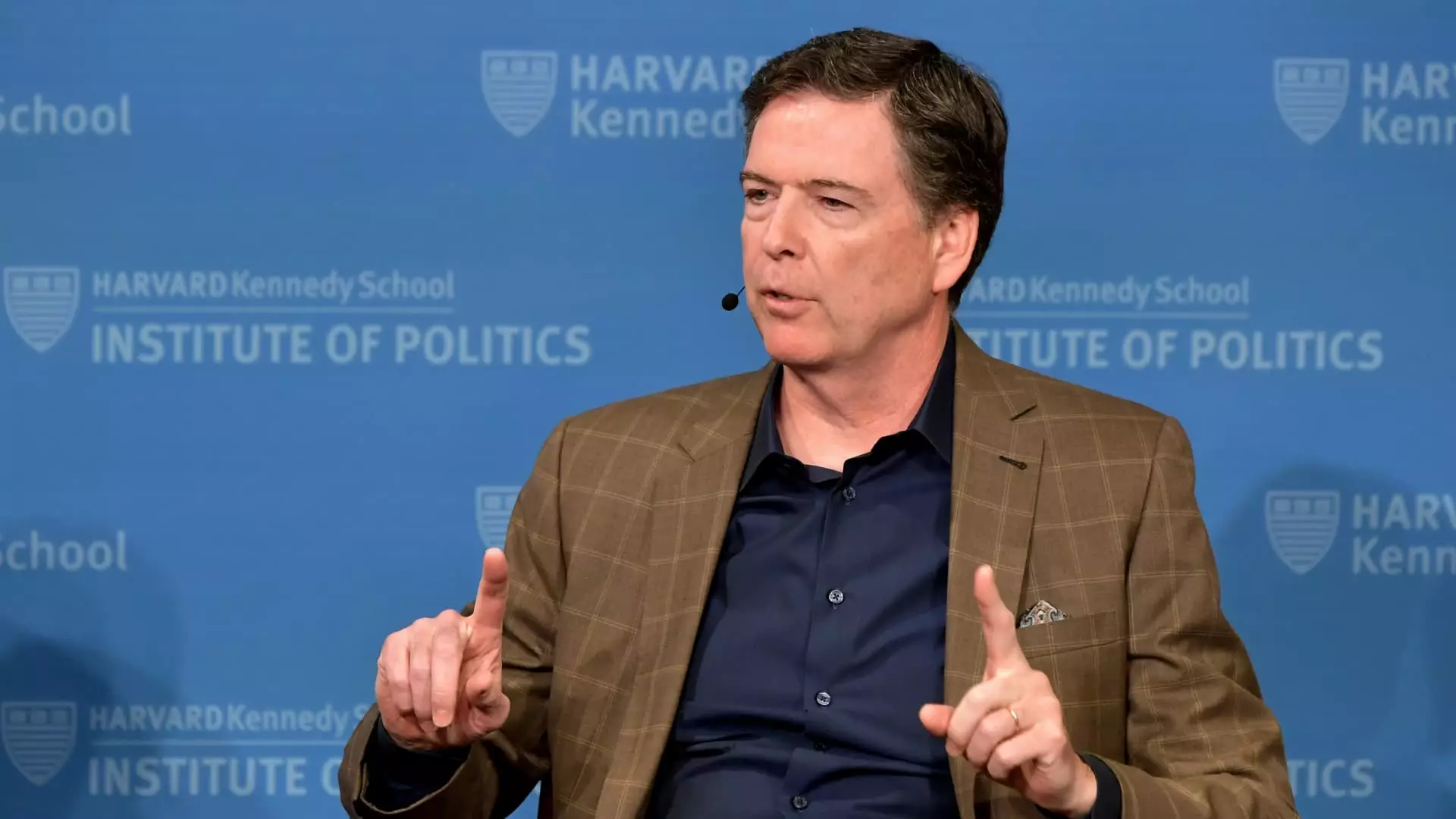In an age where social media has become the battleground for political discourse, former FBI Director James Comey’s recent Instagram post has ignited an inferno of controversy. What was intended as a harmless snapshot of what he described as a “shell formation” turned into a chilling moment that questioned the boundaries of political commentary and responsible speech. Using the numbers “8647,” Comey unwittingly aligned himself with language that critics hastily interpreted as a call for assassination against President Donald Trump. This evolving narrative surrounding Comey’s post underscores the perennial issue of how language can be twisted to wield significant repercussions in an already polarized political climate.
The Immediate Fallout
Upon its revelation, Comey’s post faced immediate backlash from prominent voices within the Trump administration. Homeland Security Secretary Kristi Noem didn’t mince words, alleging that Comey was inciting violence against the sitting president. The fervent outcry came not just from Noem, but also from Republican lawmakers and Trump’s allies, who insisted that such rhetoric was utterly unacceptable. The accusation was grave: that Comey, a public figure with considerable influence, could be seen as endorsing a violent act against the President of the United States—a notion that sent ripples through the political establishment.
In today’s charged environment, where words can ignite fierce reactions, Comey’s post embodies not only a mistake but a potential threat to public safety. The Department of Homeland Security and the Secret Service promptly announced that they would investigate the matter, highlighting their commitment to prioritizing the safety of public figures. Such swift action from federal agencies reflects a necessary seriousness about the implications of public rhetoric, especially from someone with Comey’s background.
Comey’s Response: An Unwavering Denial
In a bid to diffuse the situation, Comey issued a statement indicating that he never intended to incite violence and was taken aback by the interpretations of his post. His assertion—that he was unaware of any violent connotations associated with the numeric arrangement—signals a complete disconnect from the current political discourse. While it’s plausible that Comey did not intend harm, one must question the thought process behind posting such ambiguous content, especially against the backdrop of a society where political tensions often escalate into threats of violence. This is a man who once led the FBI; he should know better.
Unfortunately, Comey’s explanation may not be enough to quell the ire that has erupted in the aftermath. Criticism has only intensified, with political figures like Rep. Tim Burchett calling for his arrest. The notion that a former head of the FBI would announce what could be misinterpreted as a violent directive raises serious questions about accountability in the age of instant communication.
The Chilling Effect of Partisan Politics
The gravity of this situation goes beyond Comey himself; it reflects a larger issue in contemporary politics. Language is a weapon, and when wielded irresponsibly by those in positions of power, it can have devastating outcomes. The polarizing nature of today’s political landscape exacerbates these scenarios, casting shadows of doubt over any exchange between opposing factions. The concerns voiced by officials, including Donald Trump Jr., evoke a sense of urgency about the roles former officials play in shaping political narratives—particularly when the boundaries of acceptable discourse are increasingly blurred.
As citizens, we stand at a precarious juncture where every utterance carries the potential to stoke unrest. The responsibility of leading figures, including Comey, is to understand the weight their words carry and the potential ramifications they can incur. In this instance, it’s troubling to contemplate how one post could inadvertently exacerbate an already fraying political fabric.
A Call for Reflective Dialogue
What happened with James Comey’s post serves as a stark reminder of the pressing need for reflection in political communication. Public figures—once seen as arbiters of justice and reason—must now contend with the realities of an interconnected world where messages can be misconstrued, manipulated, and weaponized. The expectation of accountability transcends individual actions; it demands a collective reevaluation of how we engage in dialogue amidst a cacophony of differing views.
In a world rife with division, it’s crucial for leaders to foster environments of engagement rather than induce fear. Comey’s misstep may not only signal the dangers of irresponsible rhetoric but also serve as an urgent call to reconsider how we, as members of society, interpret and respond to the words of those in power. It beckons us to question not only the narratives we create but the impacts they yield in shaping our future.



Leave a Reply